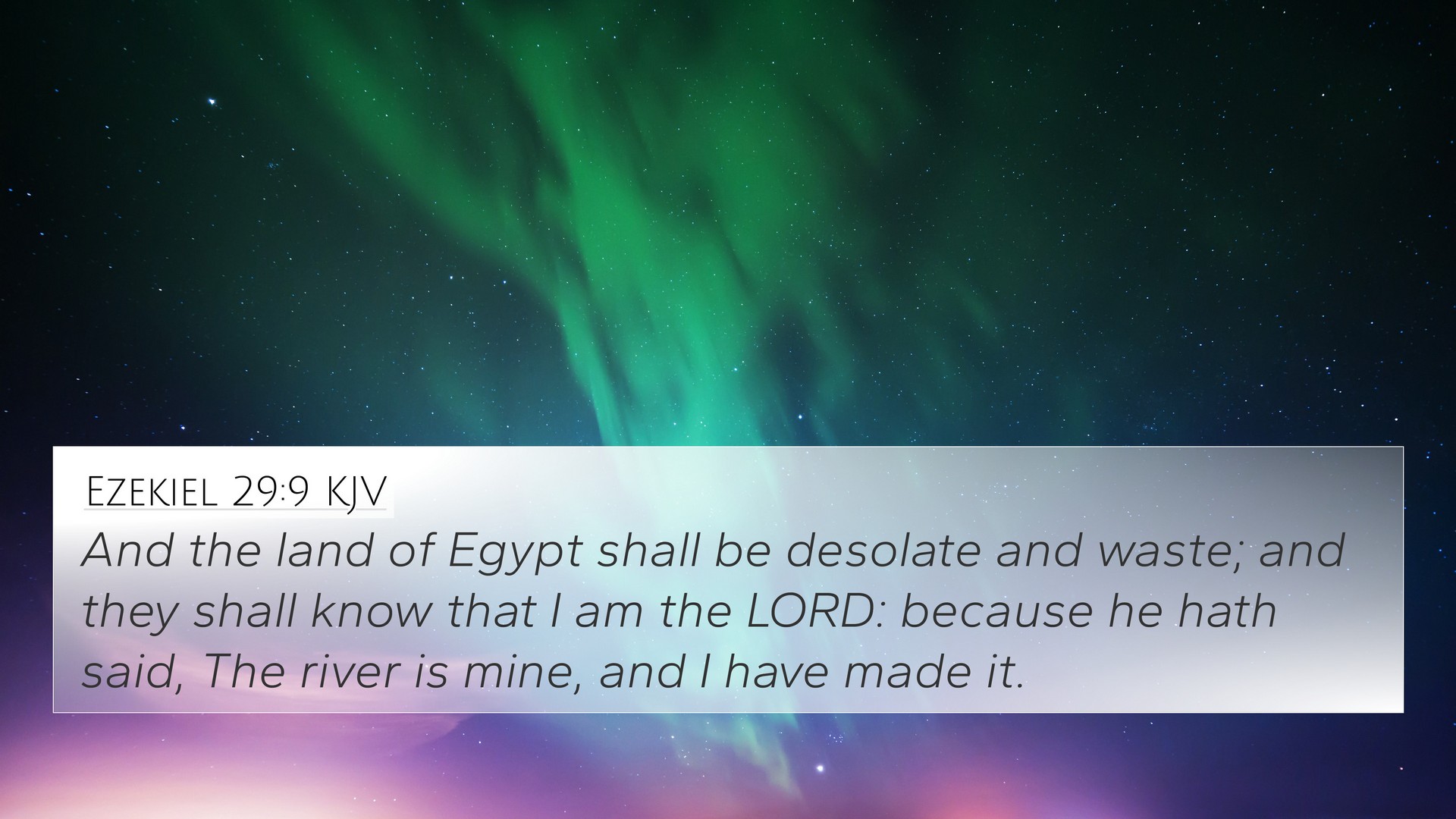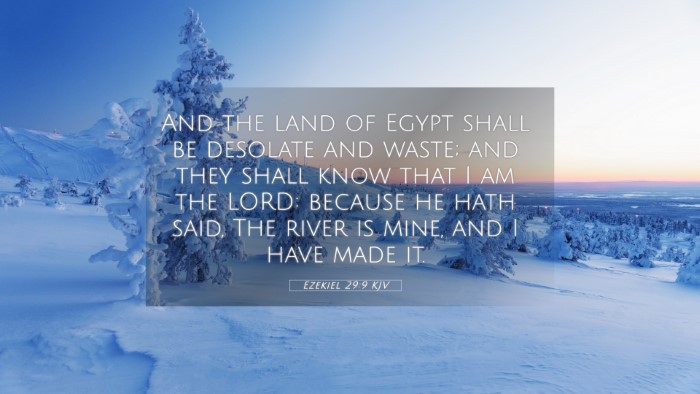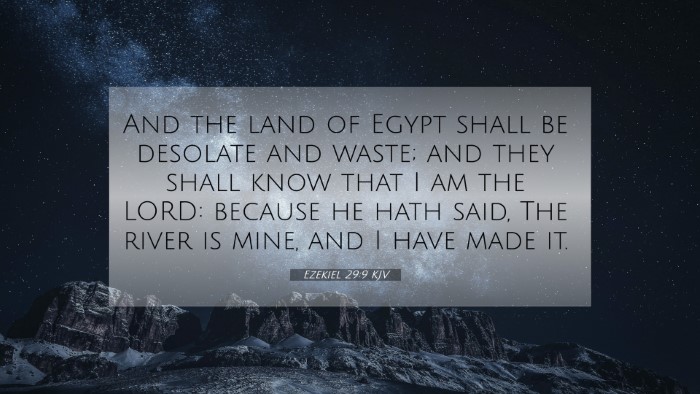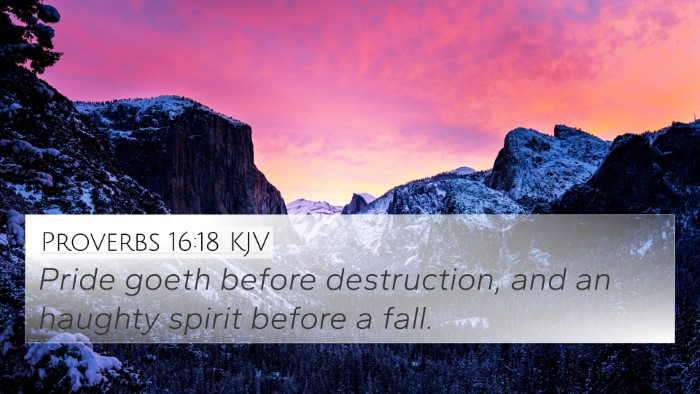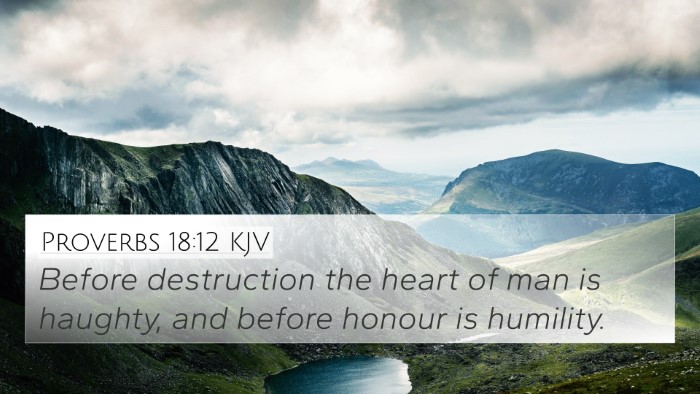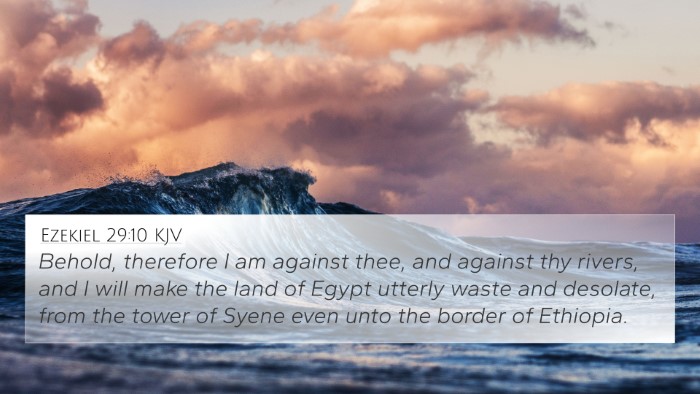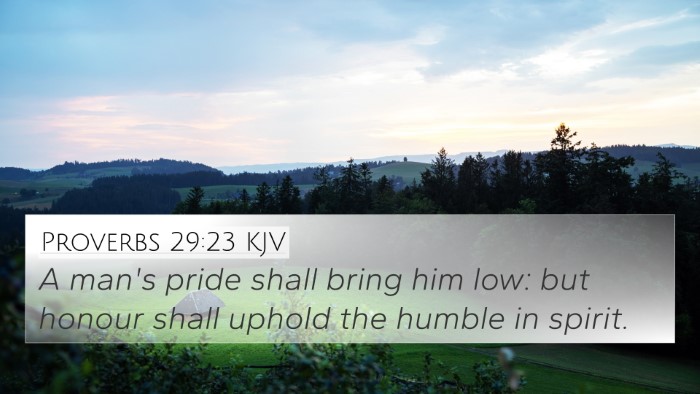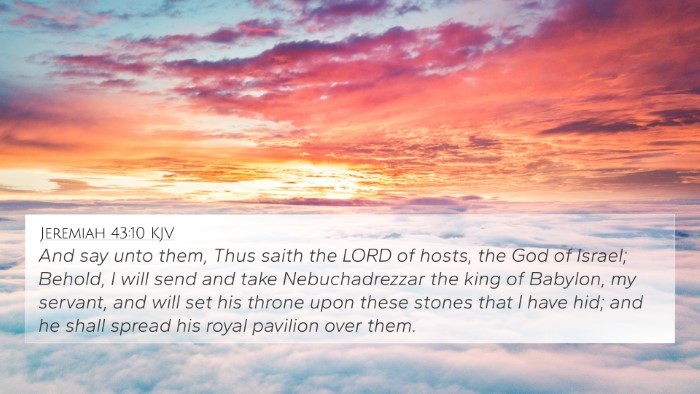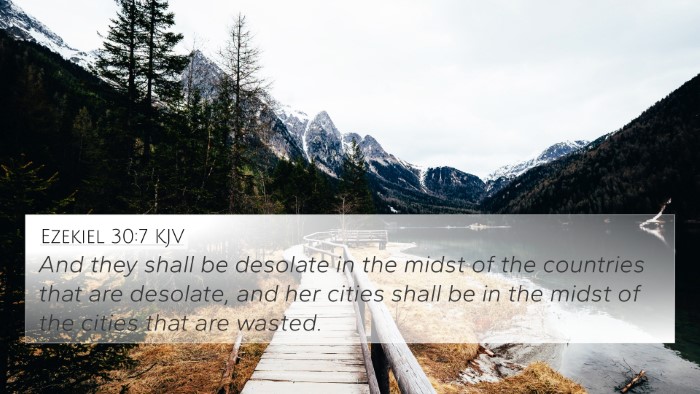Ezekiel 29:9 - Understanding the Verse
Ezekiel 29:9 (KJV): "And the land of Egypt shall be desolate and waste; and they shall know that I am the Lord: because he hath said, The river is mine, and I have made it."
Summary of Insights
This verse emphasizes God's sovereignty over nations, specifically Egypt, and highlights His power in asserting control over creation, depicted through the image of the Nile River. The destruction and desolation of Egypt serve as a stark reminder of God's judgment and the need for nations to recognize His authority.
Commentary Insights
-
Matthew Henry's Commentary:
Henry explains that the desolation of Egypt symbolizes God's judgment against pride and idolatry. The Nile, worshipped by the Egyptians, is highlighted to show that what they revered as a source of life is ultimately under God's command. This serves as a lesson of humility and recognition of God's sovereignty.
-
Albert Barnes' Notes:
Barnes affirms that this prophecy underscores the consequences of Egypt’s rebellion against God. The phrase "the river is mine" asserts God's ownership and authority over natural resources, reinforcing the theme of divine sovereignty as a constant in the midst of national turmoil.
-
Adam Clarke's Commentary:
Clarke views this verse as an admonition to the people of Israel. The desolation of Egypt signifies hope for the exiled Israelites; it signifies God’s ultimate control and reminds them to trust in His plans despite their hardships.
Key Themes and Connections
The themes of divine judgment, sovereignty, and humility emerge prominently within this verse. Connections can be drawn between Ezekiel 29:9 and multiple other verses that reflect similar themes:
- Isaiah 19:5-10 - Discusses the drying up of the Nile and the ensuing desolation, echoing God's control over Egypt.
- Exodus 7:14-25 - Shares how God turned the waters of the Nile into blood, establishing the theme of God's power over Egypt.
- Psalm 46:10 - A call to acknowledge God's sovereignty, paralleling the recognition demanded in Ezekiel 29:9.
- Jeremiah 46:25-26 - Similar declarations regarding Egypt's downfall, illustrating God's judgment over nations.
- Revelation 16:4-6 - Prophetic imagery reflecting the judgment of nations, showcasing the continuity of God's rule.
- Matthew 23:37 - Jesus expressing lament over Jerusalem, touching upon themes of refusal to acknowledge divine authority.
- Romans 13:1 - Acknowledgment of God's authority over earthly governments, creating a theological framework for understanding power dynamics.
Comparative Study of Cross-references
Cross-referencing biblical texts enriches our understanding of Ezekiel 29:9.
-
Identifying Connections Between Old and New Testament:
The New Testament often reflects upon God's sovereignty and His ultimate authority as a through-line from the Old Testament actions.
-
Cross-referencing Psalms with New Testament Teachings:
Similar themes of humility and submission are present in the Psalms, as they echo the need for nations and individuals to acknowledge God.
-
Cross-Referenced Themes:
Across chapters in Isaiah and Exodus, the motif of judgment upon nations that oppose God's authority is prevalent.
Insights on Usage of Cross-references in Biblical Studies
Utilizing a Bible cross-reference guide can assist in understanding the implications of Ezekiel 29:9:
- Engage with a Bible concordance to explore themes of sovereignty and divine judgment.
- Implement cross-reference Bible study methods to delve deeper into the narrative linked to supernatural occurrences.
- Utilize tools for Bible cross-referencing to map connections between various scriptures and recognize overarching biblical themes.
